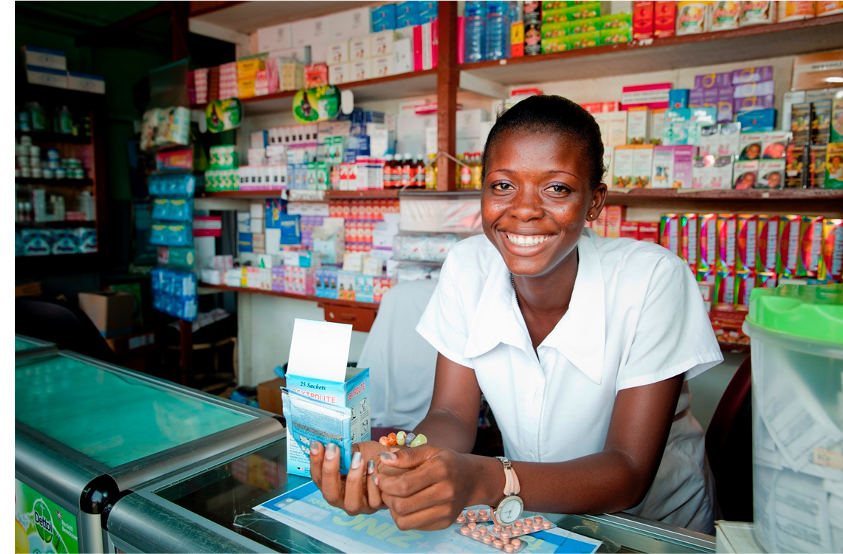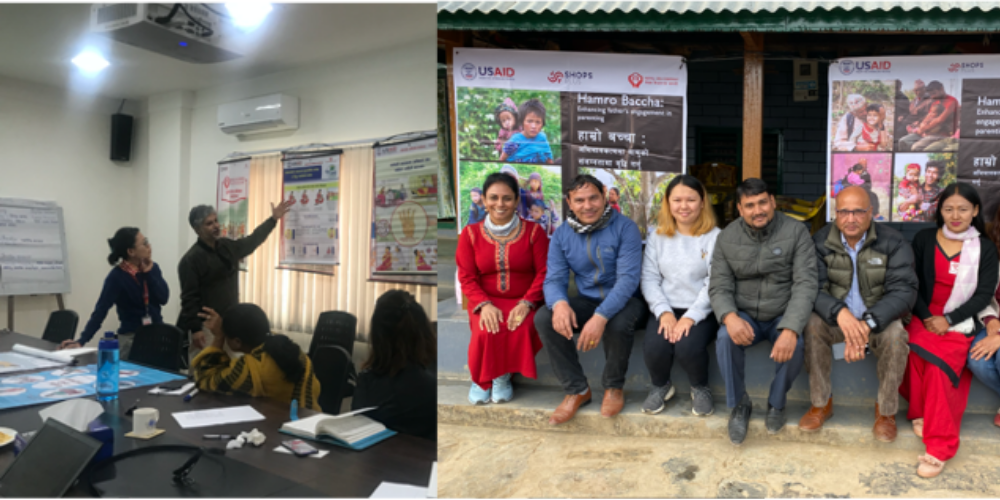Harnessing the Private Health Sector for Gender Equality
SHOPS Plus advanced gender equality by incorporating a gender lens across all project components and championing gender-transformative approaches within the private health sector. To share insights from the gender integration strategy, the project held the second in its series of webinars highlighting the project’s achievements and lessons learned. The webinar featured examples of male engagement in Afghanistan, access to finance in Tanzania, and organizational capacity building in Nepal. The webinar opened with remarks from Joan Kraft, senior gender advisor at USAID. She set the scene by underscoring the importance of gender integration in projects such as SHOPS Plus to improve global health outcomes and gender equality.
Mary Beth Hastings, senior associate at Iris Group and the SHOPS Plus gender liaison, introduced the project’s global gender integration strategy. She described how gender norms and power dynamics affect clients, providers, and health facilities. At the same time, the private health sector has largely been unexplored in terms of gender. Weaving gender into project activities from the outset, SHOPS Plus trained health providers and partner staff on gender or gender integration, targeted loans to women health providers, and helped partners create gender-transformative social and behavior change campaigns.
In Tanzania, private sector drug shops and maternity homes are predominantly owned by women in rural settings. Chief of party for the SHOPS Plus project in Tanzania, Maureen Ogada-Ndekana, explained how the project conducted a gender analysis to identify challenges women health-entrepreneurs face, and equip them with the business and financial tools to better serve their communities. SHOPS Plus worked with micro-finance and commercial banks to create tailored financing products and adapted business and financial management trainings that catered to the needs identified in the analysis. Economic empowerment not only helps women business owners sustain their practices, but ultimately leads to improved health outcomes for the women they serve.

SHOPS Plus in Nepal works with a leading social marketing organization, Nepal CRS Company. Dr. Maneshka Eliatamby, senior associate with Iris Group, spoke about the gender assessment the project conducted with CRS. Based on the assessment, SHOPS Plus supported the organization in building their capacity on gender, developing a team of gender focal persons, and building gender-sensitive hiring practices. CRS was then better able to integrate gender into its external programming, addressing male engagement and menstrual health. The changes it made suggest that when institutions address internal gender barriers, they are better suited to advocate for, and integrate, gender in external-facing programming.

Gender integration in the private health sector presents unique challenges in every country context. SHOPS Plus project identified the challenges and addressed them in effective and sustainable ways to advance gender equality and improve health outcomes.
Click here to watch the webinar recording.